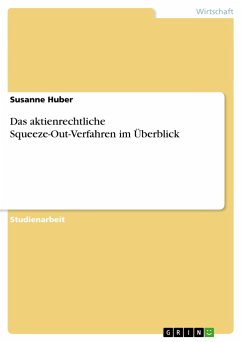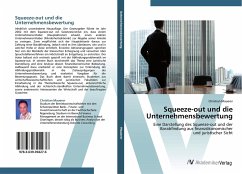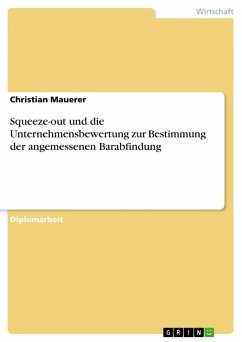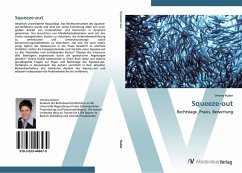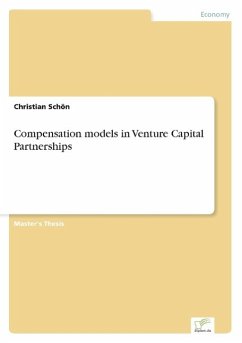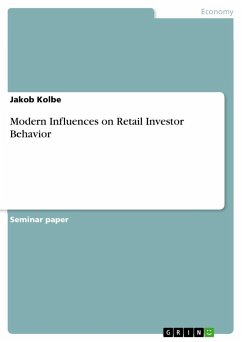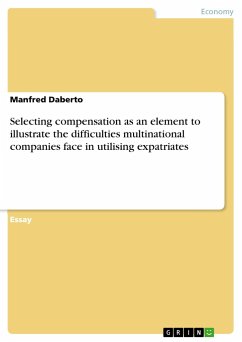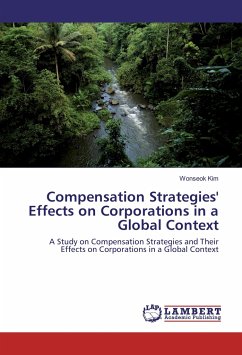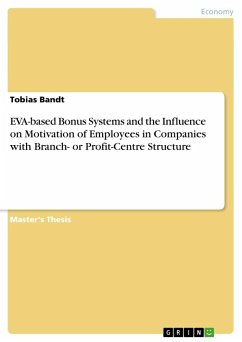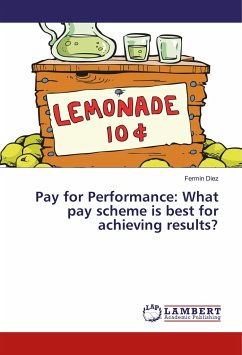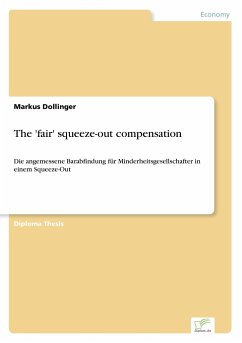
The 'fair' squeeze-out compensation
Die angemessene Barabfindung für Minderheitsgesellschafter in einem Squeeze-Out
Versandkostenfrei!
Versandfertig in 1-2 Wochen
148,00 €
inkl. MwSt.

PAYBACK Punkte
0 °P sammeln!
Diploma Thesis from the year 2006 in the subject Business economics - Investment and Finance, grade: 1,0, University of Vienna (Wirtschaftswissenschaften, Finanzwirtschaft), language: English, abstract: Inhaltsangabe:Abstract:This diploma thesis analyses squeeze-outs a deal where a controlling shareholder has the right to buy out minority shareholders at a fair compensation. As expected, the term fair can have very different meanings depending on who you ask. On the one hand, minority shareholders often argue perceiving the squeeze-out as a legal expropriation and accordingly demand a signific...
Diploma Thesis from the year 2006 in the subject Business economics - Investment and Finance, grade: 1,0, University of Vienna (Wirtschaftswissenschaften, Finanzwirtschaft), language: English, abstract: Inhaltsangabe:Abstract:
This diploma thesis analyses squeeze-outs a deal where a controlling shareholder has the right to buy out minority shareholders at a fair compensation. As expected, the term fair can have very different meanings depending on who you ask. On the one hand, minority shareholders often argue perceiving the squeeze-out as a legal expropriation and accordingly demand a significant squeeze-out premium. On the other hand, controlling shareholders have the clear and simple intention to pay as little as possible when acquiring the remaining stake in the company. Even law, often seen as the last resort, leaves out a clear and definite description of the expression fair why the squeeze-out compensation turned out to be the crucial point in almost all past squeeze-out processes.
Squeeze-outs, in the US called freeze-outs , usually follow a public tender offer where a shareholder has acquired the necessary shareholding (e.g. 90 percent) and consequently obtained the right to exclude the remaining minority shareholders by paying an adequate compensation. In this context the squeeze-out rule, providing the legal framework, has the intention to make public takeovers more attractive. However, in the recent years, more and more minority shareholders executed their own right to challenge the proposed fair squeeze-out compensation in court with the objective to improve the value of the initial squeeze-out offer.
For example, minority shareholders of the German Hamburg-Mannheimer AG that protested against the squeeze-out resolution and requested a judicial appraisal of majority shareholder s initially proposed fair squeeze-out compensation in June 2002 could, after a costly lawsuit that lasted two years, finally more than double the amount offered under the terms of majority shareholder s original squeeze-out proposal. Hence, squeeze-outs under prevailing German as well as Austrian law are often seen as a free call option with exercise price equal to majority shareholder s initially proposed fair squeeze-out compensation. This option is almost for free since the court costs due to the appraisal are covered by the majority shareholder and minority shareholders only have to pay for their own lawyer. Moreover, prevailing opinion assumes that the judicial appraisal can t result in a decrease of majority shareholder s initially proposed fair squeeze-out compensation.
Motivated by these lucrative facts, the objective of this paper is to provide a deeper insight into the legal framework as well as the financial, theoretical and practical, aspects of squeeze-outs in Austria and Germany. In particular, I want to discuss different theoretical valuation approaches used to determine or at least to justify majority shareholder s proposed fair squeeze-out compensation. Moreover, I investigate minority shareholders squeeze-out premiums realised in squeeze-out transactions. In this context, I also want to examine the question whether it might pay off for shareholders not to tender their shares in the tender offer stage of a two-tier offer but to wait for the inevitable squeeze-out process, and so possibly receive an even higher premium.
Last but not least, I want to analyse whether some speculating investors intentionally seek to acquire the shares of companies subject to a squeeze-out to maybe benefit from the free call option embedded in the squeeze-out process as represented by the right to request a judicial appraisal of majority shareholder s initially proposed fair squeeze-out compensation.
The paper is organized as follows. The next section, Section 2, discusses the prevailing and future legal framework to execute squeeze-outs in Austria and Ger...
This diploma thesis analyses squeeze-outs a deal where a controlling shareholder has the right to buy out minority shareholders at a fair compensation. As expected, the term fair can have very different meanings depending on who you ask. On the one hand, minority shareholders often argue perceiving the squeeze-out as a legal expropriation and accordingly demand a significant squeeze-out premium. On the other hand, controlling shareholders have the clear and simple intention to pay as little as possible when acquiring the remaining stake in the company. Even law, often seen as the last resort, leaves out a clear and definite description of the expression fair why the squeeze-out compensation turned out to be the crucial point in almost all past squeeze-out processes.
Squeeze-outs, in the US called freeze-outs , usually follow a public tender offer where a shareholder has acquired the necessary shareholding (e.g. 90 percent) and consequently obtained the right to exclude the remaining minority shareholders by paying an adequate compensation. In this context the squeeze-out rule, providing the legal framework, has the intention to make public takeovers more attractive. However, in the recent years, more and more minority shareholders executed their own right to challenge the proposed fair squeeze-out compensation in court with the objective to improve the value of the initial squeeze-out offer.
For example, minority shareholders of the German Hamburg-Mannheimer AG that protested against the squeeze-out resolution and requested a judicial appraisal of majority shareholder s initially proposed fair squeeze-out compensation in June 2002 could, after a costly lawsuit that lasted two years, finally more than double the amount offered under the terms of majority shareholder s original squeeze-out proposal. Hence, squeeze-outs under prevailing German as well as Austrian law are often seen as a free call option with exercise price equal to majority shareholder s initially proposed fair squeeze-out compensation. This option is almost for free since the court costs due to the appraisal are covered by the majority shareholder and minority shareholders only have to pay for their own lawyer. Moreover, prevailing opinion assumes that the judicial appraisal can t result in a decrease of majority shareholder s initially proposed fair squeeze-out compensation.
Motivated by these lucrative facts, the objective of this paper is to provide a deeper insight into the legal framework as well as the financial, theoretical and practical, aspects of squeeze-outs in Austria and Germany. In particular, I want to discuss different theoretical valuation approaches used to determine or at least to justify majority shareholder s proposed fair squeeze-out compensation. Moreover, I investigate minority shareholders squeeze-out premiums realised in squeeze-out transactions. In this context, I also want to examine the question whether it might pay off for shareholders not to tender their shares in the tender offer stage of a two-tier offer but to wait for the inevitable squeeze-out process, and so possibly receive an even higher premium.
Last but not least, I want to analyse whether some speculating investors intentionally seek to acquire the shares of companies subject to a squeeze-out to maybe benefit from the free call option embedded in the squeeze-out process as represented by the right to request a judicial appraisal of majority shareholder s initially proposed fair squeeze-out compensation.
The paper is organized as follows. The next section, Section 2, discusses the prevailing and future legal framework to execute squeeze-outs in Austria and Ger...





